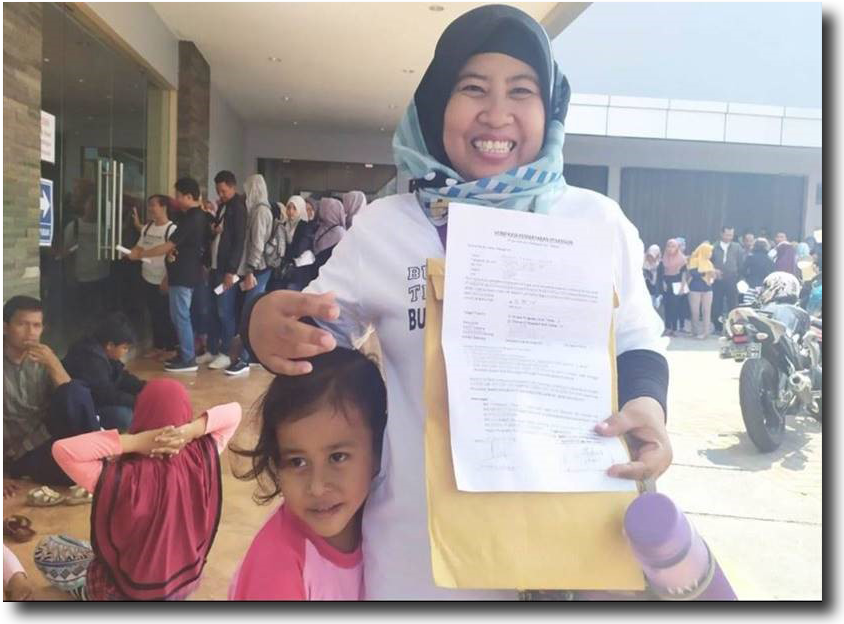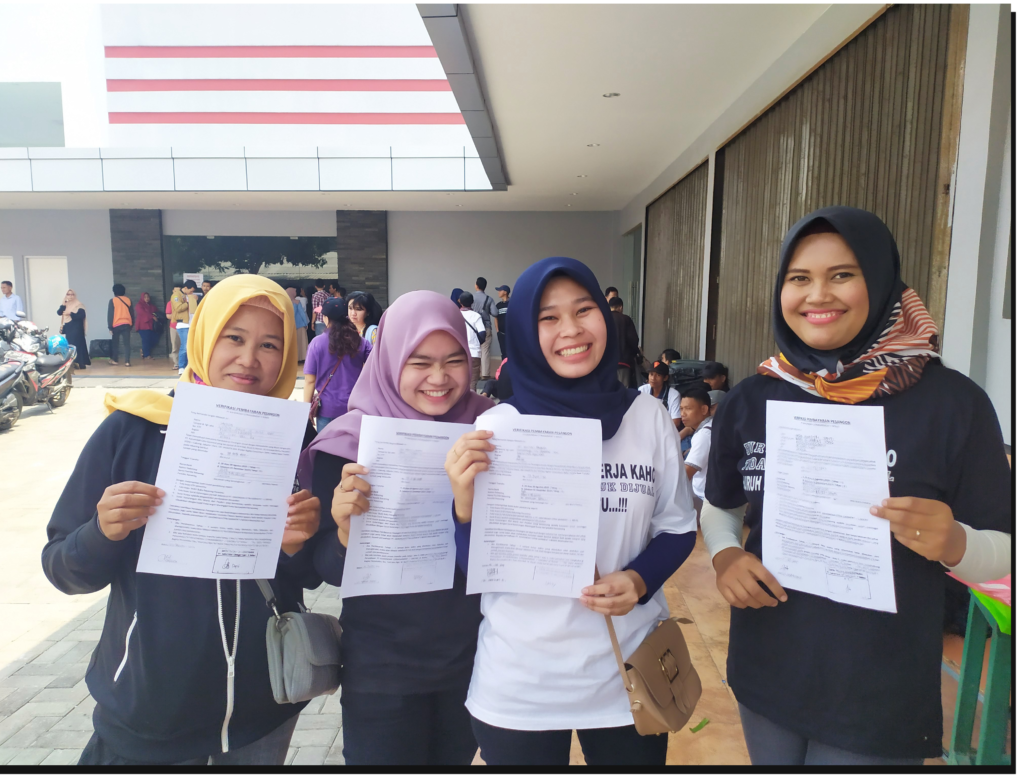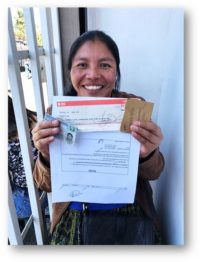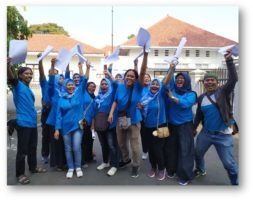Looking Back and Looking Forward: The WRC’s Increasing Success in Remedying the Nonpayment of Severance and the Major Challenges Ahead

Looking Back and Looking Forward: The WRC’s Increasing Success in Remedying the Nonpayment of Severance and the Major Challenges Ahead
In this communication: The WRC secured $14 million in back pay for thousands of workers over the last year in cases of unpaid severance. Covid-19 brings huge new risks on this issue across the collegiate supply chain. The WRC is gearing up to help universities uphold their labor standards and avoid nonpayment of legally mandated compensation to hundreds of thousands of workers making collegiate apparel. This memo enumerates recent successes and outlines the challenge ahead.
June 17, 2020
The failure of apparel factories to pay workers legally owed severance benefits when factories close is one of the most pernicious problems in the garment industry. When workers lose their jobs, severance is a vital resource, given that most countries provide no unemployment benefits.
The problem will increase dramatically as factories face closure in the current crisis. With scant near-term prospects for employment, payment of legally mandated severance will be vital to the survival of garment workers who lose their jobs in the months ahead.
Before university codes of conduct, severance violations in the global garment industry routinely went unremedied—workers were deprived of these funds just when they needed them most.
Among factories producing collegiate logo apparel, this is no longer the case. The WRC, working with universities, licensees, and worker organizations, has achieved full remedy for workers in a growing number of cases.
For example, since the start of 2019, the WRC has secured more than $14 million in back pay for over 7,000 workers at ten different factories. More than 80 percent of these funds were owed to workers making collegiate apparel. This a powerful illustration of what can be achieved through collaboration among universities, the WRC, and licensees to protect garment workers globally.
As garment factories and workers making collegiate apparel, worldwide, face the effects of Covid-19, this collaboration will be more vital than ever.
Power of University Codes in the Collegiate Supply Chain and Beyond
Here is a brief overview of some of these recent successes:
- $4.5 million in severance for 2,001 workers at PT Kahoindah Bekasi (Indonesia). Before its closure, the factory supplied collegiate apparel to Nike and non-collegiate apparel to Fanatics and Under Armour. The owner of PT Kahoindah initially tried to avoid paying workers half of their severance by coercing them to resign before the factory closed. But after the WRC reported these findings to and engaged with universities and buyers, the factory agreed to pay the workers the full severance they were legally owed.
- $4 million in severance for 1,021 workers at PT Kukdong (Indonesia). A longtime supplier of collegiate apparel to Nike, the PT Kukdong factory closed in September 2019. As the factory’s owner acknowledged, the recent example of PT Kahoindah Bekasi had made clear to Kukdong that full payment of severance was its only option. As a result, when the factory announced it was closing, it negotiated with its unions an agreement to pay its workers, on time, the full severance they were owed, an increase of $4 million over the amount the factory would have paid without outside pressure.
- $1.3 million in severance for 500 workers at CSA (Guatemala). This factory supplied non-collegiate apparel to two brands that own university licensees: Hanes (Gear for Sports) and American Eagle (Tailgate). When it closed, the factory paid workers less than 10 percent of what they were legally owed and was effectively bankrupt. Following intervention by the WRC, Hanes and American Eagle, along with Gap, agreed to pay most of the outstanding severance.
- $2.9 million in severance for 1,600 workers at Hansoll Hyun (Indonesia). Workers at the factory have been owed $4.5 million in unpaid severance since this factory closed. Because there is no prospect that the factory’s owners could be located to pay, the WRC contacted buyers, including Hanes, which had sourced collegiate apparel from the plant. Hanes agreed to contribute $400,000. The WRC was then able to leverage Hanes’ contribution to secure an additional $2.5 from Hansoll Textile, the primary buyer. The WRC is now engaging with the remaining buyers to secure the outstanding arrears for workers.
- $468,000 in severance for 240 workers at Direct Ship America (Honduras). This case is notable because Fanatics informed the WRC about this factory closure before it occurred and reported that the factory did not possess the resources to pay workers their severance. To its credit, the licensee committed to ensuring that the workers would be paid all of the money they had earned. The direct payments were made by Fanatics’s agent.
In all of these cases, after securing the necessary financial commitments, the WRC spearheaded the distribution of funds, ensuring payments were made securely and were properly documented.
Severance and Covid-19: The Challenge to University Code Compliance Moving Forward
The Covid-19 crisis will force many factories to drastically reduce employment or close outright, creating risk across the collegiate supply chain that workers will lose their jobs without legally mandated compensation.
Efforts to avert these violations in the months ahead, and to remedy those violations that will inevitably occur, will be essential. Otherwise, hundreds of thousands of workers may be deprived of money they legally earned making university logo goods.
Fortunately, the foundation built over the recent years of work on this issue, and the strength of universities’ commitment to strong labor standards, puts us in a strong position to succeed in these efforts.
We will keep you posted as this work proceeds. As always, please let us know if you have any questions or thoughts about this communication.





